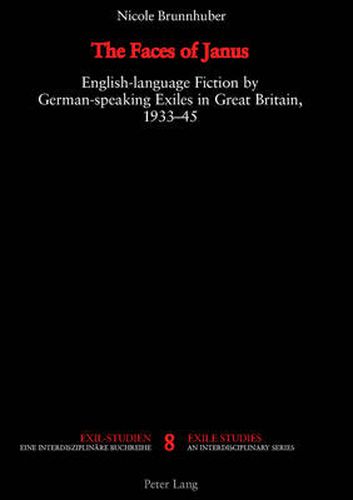Readings Newsletter
Become a Readings Member to make your shopping experience even easier.
Sign in or sign up for free!
You’re not far away from qualifying for FREE standard shipping within Australia
You’ve qualified for FREE standard shipping within Australia
The cart is loading…






This title is printed to order. This book may have been self-published. If so, we cannot guarantee the quality of the content. In the main most books will have gone through the editing process however some may not. We therefore suggest that you be aware of this before ordering this book. If in doubt check either the author or publisher’s details as we are unable to accept any returns unless they are faulty. Please contact us if you have any questions.
The author offers an interdisciplinary examination of the German-speaking exile experience in Great Britain from the beginnings of the Nazi regime to the end of the Second World War. The book examines the contingencies of cultural production for German and Austrian exiles against the historical context of British immigration and internment policies. By investigating the influence and manipulation of trends in popular British culture in the English-language exile fiction by Ernest Borneman, Robert Neumann, Ruth Feiner, Lilo Linke and George Tabori, the author illustrates how a suspect minority voiced their socio-political concerns in the dominant culture, and presents a strong case for the facilities of polylingualism in literature. The book reconstructs biographical and cultural histories of authors whose remarkable success as English-language writers may otherwise risk lingering in obscurity. Since the author traces the interaction of historical events and the personal experience of a range of writers, themes of gender-based, national and religious identities are addressed. Flexible and accessible, the book extracts meaning from the politics of popular culture and cultural exchange in the twentieth century during a period of nationalism, acute jingoism and war.
$9.00 standard shipping within Australia
FREE standard shipping within Australia for orders over $100.00
Express & International shipping calculated at checkout
This title is printed to order. This book may have been self-published. If so, we cannot guarantee the quality of the content. In the main most books will have gone through the editing process however some may not. We therefore suggest that you be aware of this before ordering this book. If in doubt check either the author or publisher’s details as we are unable to accept any returns unless they are faulty. Please contact us if you have any questions.
The author offers an interdisciplinary examination of the German-speaking exile experience in Great Britain from the beginnings of the Nazi regime to the end of the Second World War. The book examines the contingencies of cultural production for German and Austrian exiles against the historical context of British immigration and internment policies. By investigating the influence and manipulation of trends in popular British culture in the English-language exile fiction by Ernest Borneman, Robert Neumann, Ruth Feiner, Lilo Linke and George Tabori, the author illustrates how a suspect minority voiced their socio-political concerns in the dominant culture, and presents a strong case for the facilities of polylingualism in literature. The book reconstructs biographical and cultural histories of authors whose remarkable success as English-language writers may otherwise risk lingering in obscurity. Since the author traces the interaction of historical events and the personal experience of a range of writers, themes of gender-based, national and religious identities are addressed. Flexible and accessible, the book extracts meaning from the politics of popular culture and cultural exchange in the twentieth century during a period of nationalism, acute jingoism and war.